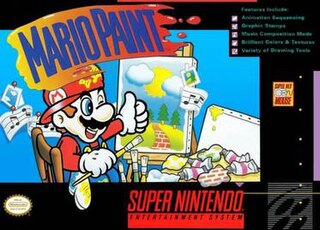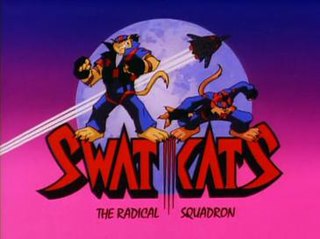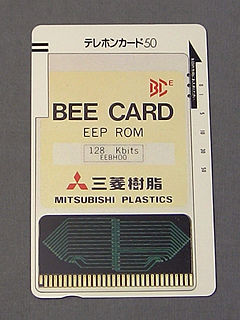
In the United States, a SWAT team is a law enforcement unit that uses specialized or military equipment and tactics. Although they were first created in the 1960s to handle riot control or violent confrontations with criminals, the number and usage of SWAT teams increased in the 1980s and 1990s during the War on Drugs and later in the aftermath of the September 11 attacks. In the United States as of 2005, SWAT teams were deployed 50,000 times every year, almost 80% of the time to serve search warrants, most often for narcotics. SWAT teams are increasingly equipped with military-type hardware and trained to deploy against threats of terrorism, for crowd control, hostage taking, and in situations beyond the capabilities of ordinary law enforcement, sometimes deemed "high-risk". Other countries have developed their own paramilitary police units (PPUs) that are also described as or comparable to SWAT forces.
Police Quest is a series of police simulation video games. Police Quest was produced and published by Sierra On-Line between 1987 and 1998. The first five were adventure simulation games, the first three of which were designed by former police officer Jim Walls. The fourth to sixth titles were designed by former LAPD Chief Daryl F. Gates. Both SWAT and the real-time tactics game SWAT 2 still carried the Police Quest name and were numbered V and VI in the series, respectively, although subsequent titles in the series would drop the Police Quest title altogether and were rebranded as SWAT.
TwinBee (ツインビー) is a video game series composed primarily of cartoon-themed vertical-scrolling shoot-'em-up games produced by Konami that were released primarily in Japan. The series originated as a coin-operated video game simply titled TwinBee in 1985, which was followed by several home versions and sequels. The character designs of almost every game in the series since Detana!! TwinBee in 1991 were provided by Japanese animator Shuzilow HA, who also planned and supervised most of the subsequent installments in the TwinBee series. The series also inspired a radio drama adaptation that lasted three seasons in Japan, as well as an anime adaptation.

Mario Paint is a video game released in 1992 by Nintendo for use with the Super Nintendo Entertainment System. It is packaged with the Super NES Mouse peripheral. The game was developed by Nintendo Research & Development 1 and Intelligent Systems.

I Love Bees was an alternate reality game (ARG) that served as both a real-world experience and viral marketing campaign for the release of developer Bungie's 2004 video game Halo 2. The game was created and developed by 42 Entertainment. Many of the same personnel had previously created an ARG for the film A.I. titled The Beast. I Love Bees was commissioned by Microsoft, Halo 2's publisher and Bungie's ultimate parent company at the time.

SWAT Kats: The Radical Squadron is a 1993-1994 American animated television series created by Christian and Yvon Tremblay and produced by Hanna-Barbera Cartoons. The series takes place in the fictional metropolis of Megakat City, which is populated by anthropomorphic felines, known as "kats". The SWAT Kats of the title are two vigilante pilots who possess a state-of-the-art fighter jet with an array of weaponry. Throughout the series, they face various villains as well as competition from Megakat City's militarized police force called the Enforcers.

SWAT 3: Close Quarters Battle is a tactical shooter video game developed by Sierra Northwest and published by Sierra Entertainment for Microsoft Windows-based PCs. It is the seventh installment of the Police Quest series and the first game in the series to be played from the first-person perspective. Unlike many other first-person shooter games, SWAT 3 places an emphasis on realistic police methods and tactics, including proper room clearance, use of less-lethal weaponry, ordering compliance and arresting enemies rather than shooting on sight, and differentiating between authorized and unauthorized use of lethal force.
Eric Brosius is a musician and video game developer, and a former employee of Looking Glass Studios. He is a former member of the band Tribe and is married to Terri Brosius. He is currently a member of the bands Eddie Japan and Dark Wheels.

The Coles is a colloquial term referring to Corey Cole and Lori Ann Cole, a husband and wife team who are both video game designers. While they are most well known working together designing the Quest for Glory series, both are notable separately for designing games and game engines independently of each other.
"Grantchester Meadows" is the second track from the studio disc of the experimental Pink Floyd album Ummagumma. It was written and performed entirely by Roger Waters. The song features his lyrics accompanied by an acoustic guitar played by Waters himself, while a tape loop of a skylark chirps in the background throughout the entire song. At approximately 4:13, the sound of a honking goose is temporarily introduced, followed by the sound of it taking off. As the instrumental track fades out, an incessant buzzing bee which has been heard throughout the song is chased after by an unidentified person and finally swatted, cutting abruptly to the next track.

Monty Python's Previous Record is the third album by Monty Python. Released in 1972, it marked the group's first collaborations with regular sound engineer Andre Jacquemin as well as musician Neil Innes, who had previously appeared with future members of the Python team on Do Not Adjust Your Set. The album contains many sketches from the third series of Flying Circus, one from the second as well as an abridged version of "The Tale of Happy Valley" from the second German show. The album was released midway through the broadcast of Series 3, whose sketches featured on the album were all from its first half, with the exception of "Dennis Moore" which aired a month later and therefore made its debut here. The oldest sketch on the album, Eric Idle's "Radio Quiz Game", dates back to I'm Sorry I'll Read That Again where it was performed by Graeme Garden - Idle having subsequently performed the sketch himself on two editions of Do Not Adjust Your Set. The rest of the material was specially written for the album.

SWAT 4 is a 2005 tactical shooter video game developed by Irrational Games and published by Vivendi Universal Games exclusively for Microsoft Windows. It was built on Irrational Games' Vengeance Engine powered by Unreal Engine 2 technology. In SWAT 4, the player leads a SWAT element in resolving various situations, such as Hostage Rescues or apprehensions of dangerous subjects, simulating the experiences of real-life Special Weapons and Tactics operators.

Police Quest: SWAT 2 (stylized as SWAT2) is a 1998 real-time tactics and police simulation video game released for Microsoft Windows. It is the sixth game in the Police Quest series. It uses an isometric projection camera view, somewhat similar to the squad-level real-time tactics video game in the mold of X-COM or Jagged Alliance games. Police Quest: SWAT 2's gameplay takes place in real-time, with the player issuing orders to individual avatars from a static isometric view of the level.

A Bee Card is a ROM cartridge developed by Hudson Soft as a software distribution medium for MSX computers. Bee Cards are approximately the size of a credit card, but thicker. Compared to most game cartridges, the Bee Card is small and compact. Bee Cards were released in Japan and in Europe, but not in North America because the MSX was unsuccessful in North America. However, Atari Corporation adopted the Bee Card for the Atari Portfolio, a handheld PC released in 1989 in North America. Bee Cards were also used by some Korg Synthesizers and workstations as external storage of user content like sound programs or song data. Even though these systems all use Bee Cards, they are incompatible with each other.

Swatting is a criminal harassment tactic of deceiving an emergency service into sending a police and emergency service response team to another person's address. This is triggered by false reporting of a serious law enforcement emergency, such as a bomb threat, murder, hostage situation, or a false report of a "mental health" emergency, such as reporting that a person is allegedly suicidal or homicidal and may or may not be armed.
L.A. SWAT is a 1986 video game released by Mastertronic for the Amstrad CPC, Atari 8-bit family, Commodore 64, and ZX Spectrum. In this game, the player assumed the role of a Los Angeles police officer fighting rioters. In each level, the player would move toward the top of the screen avoiding or shooting the rioters, who would either lob grenades, if at a distance, or beat your character to the pavement with clubs if in melee range.

Police Quest: SWAT is the fifth game in the Police Quest series. It is a graphic adventure game released in 1995, and re-released in 2016 for Steam. With extensive use of FMV videos for its basic gameplay, the game required four CD-ROMs.

SWAT: Global Strike Team is a 2003 tactical shooter video game developed by Argonaut Games and published by Sierra Entertainment for the PlayStation 2 and Xbox. It featured a new game engine developed by Argonaut developed to push the lighting capabilities of the Xbox and was the first SWAT game to ship on console systems. The game was inspired by the strategic elements of SWAT 3 with the instantly accessible arcade action of the Virtua Cop series.

Sacramento Republic FC is an American professional soccer team based in Sacramento, California, that plays in the Western Conference of the USL Championship. Co-founded by Warren Smith and Joe Wagoner in 2012, the team started to play in 2014 at Hughes Stadium, a 20,231 seat stadium. They moved mid-season to their current home at Papa Murphy's Park. Since then, Republic FC won the 2014 USL championship and made the playoffs four times.
The 2017 Wichita swatting was a swatting incident that occurred on December 28, 2017 in Wichita, Kansas. Casey Viner and Tyler Barriss were responsible for placing the fraudulent call, and their intended target was Shane Gaskill. The three were connected through the video game Call of Duty: WWII. Gaskill intentionally provided the wrong address, one that was occupied by an uninvolved person, Andrew Finch. Wichita Police responded to the address, and as Finch was exiting the house, police officer Justin Rapp fatally shot him.













